Grab A Desktop APU On Discount: Ryzen 8000G And Other AMD Chips Get Price Cuts
It was easy to recommend AMD's Ryzen 8000 family at launch because of their solid value proposition. Now, after a round of price cuts, these parts just became even more attractive. The three chips on offer are the Ryzen 7 8700G, Ryzen 5 8600G, and Ryzen 5 8500G. Let's rap about these chips a little bit.
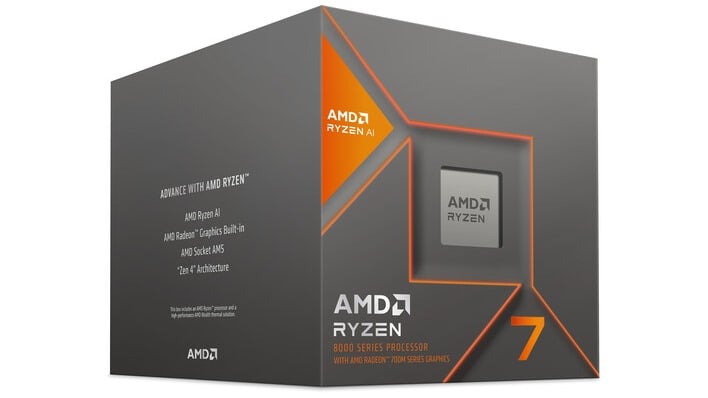
The Ryzen 7 8700G offers eight full-fat Zen 4 CPU cores with a peak boost clock of 5.1 GHz. That's 300 MHz off the Ryzen 7 7700X, and that CPU has the same core configuration with double the L3 cache at 32 MB. However, eight Zen 4 CPU cores at 5.1 GHz is still an extremely fast CPU, and the addition of a full twelve RDNA 3 compute units means that you can play virtually any game on this chip without a discrete GPU.
A lot of folks might sneer at the idea of integrated graphics gaming, but you have to remember that this is the exact same silicon you'll find inside the ASUS ROG Ally, the Lenovo Legion Go, the Ayaneo Slide, and many other handheld gaming systems. The difference is that, being on a desktop platform, they have greatly-increased power limits and the chips can really stretch their legs.
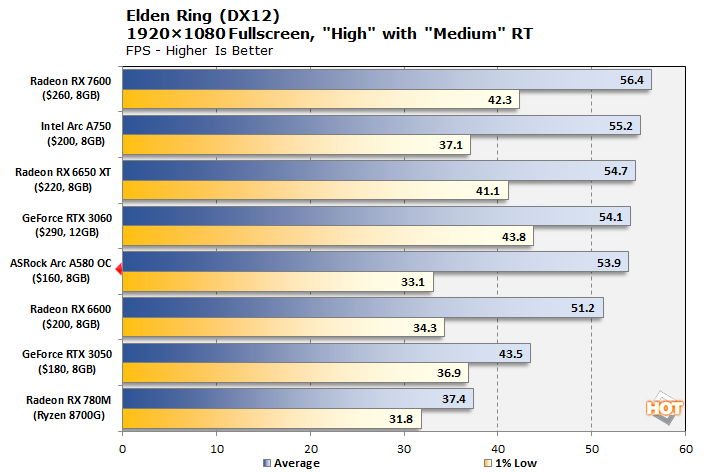
Check out this chart from our recent Arc A580 review. This is Elden Ring running in 1920×1080 resolution, on High settings, with Ray-tracing set to "Medium". There's no tricks here; no fancy upscaling or AI wizardry. AMD's CPU and GPU combo chip is simply putting out 31.8 FPS as a minimum, with the average trending closer to 40 FPS. Again, this is with ray-tracing enabled, mind you; you could get much higher performance if you turn that feature off, but recall also that this is a 30 FPS game on consoles; 31.8 FPS minimum is more than playable.
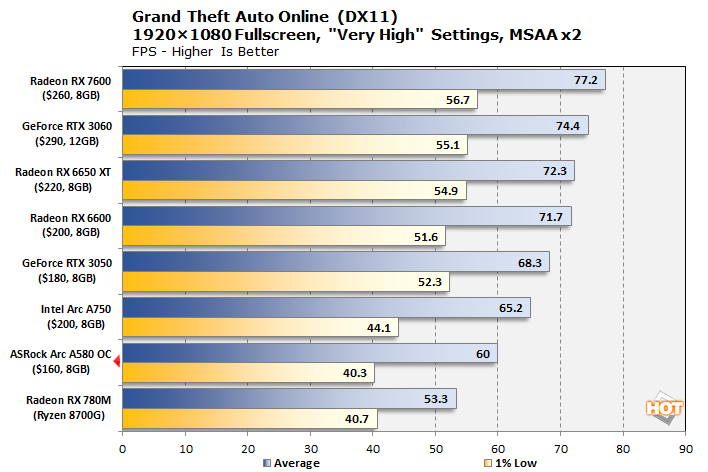
As an additional data point, check out this GTA Online benchmark. In full 1080p resolution with multi-sampling anti-aliasing enabled, we're still pushing over 50 FPS average on integrated graphics. The 1% low result is better than the Arc A580's, and this is with the game's graphics settings nearly maxed-out aside from that anti-aliasing toggle. Tick down a few settings and you've got a stable 60 FPS all day.
With that kind of performance on tap from a single-chip solution that also supplies eight fast CPU cores and an integrated NPU, $300 starts to look like a pretty damn solid price. If you're intending to install a discrete GPU, you'll probably want to pick up the Ryzen 7 7700X for a bit less, or possibly pay another $40 for a Ryzen 7 7800X3D. If you're gaming on a tight budget or simply a casual gamer, though, the Ryzen 7 8700G will do just fine on its own.
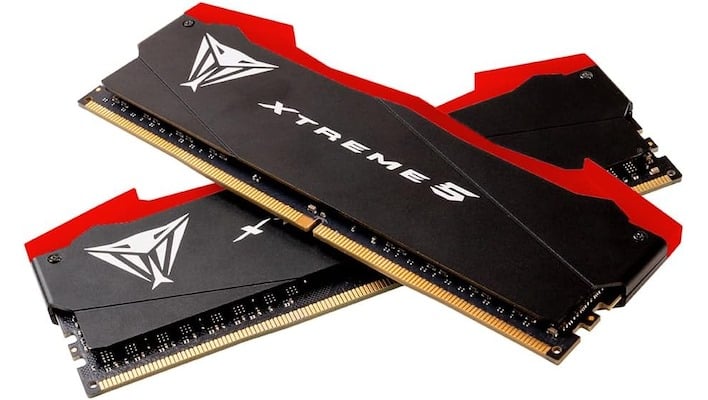
Now, in the interest of full disclosure, we have to admit that these benchmarks were made using very fast DDR5 memory with a 7200 MT/s transfer rate. Memory bandwidth is critical to graphics performance, and that's doubly true when the GPU has to share the memory bus with the CPU cores. In other words, without fast RAM, you won't be seeing this kind of performance, but we didn't have to go through the tiresome process of manually overclocking the memory: just enabling XMP and then ticking the transfer rate down a couple notches got us a stable system with super speed RAM.
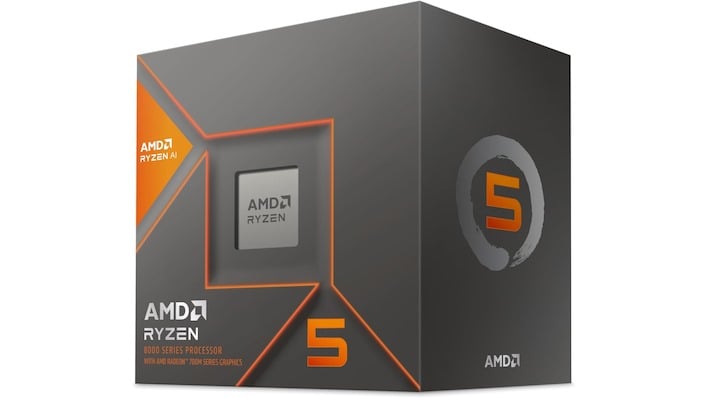
The Ryzen 5 8600G obviously won't offer the same kind of performance given that it cuts 25% of the CPUs, 33% of the GPU, and 100 MHz of core clock rate. However, at $199, it's still a hell of a deal. It's actually one of the cheaper CPUs that you can get for Socket AM5, and it still clocks to 5 GHz. The integrated GPU will do just fine for indie games, emulators (including PS3 and Switch), and older games, and considering it's just $200 for the CPU and GPU, it's hard to complain.
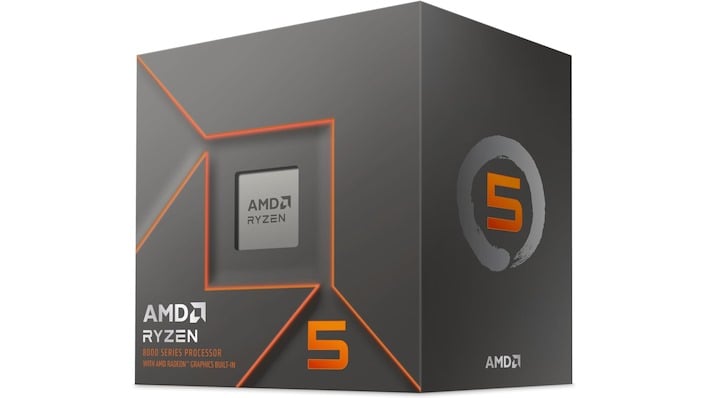
Finally, the Ryzen 5 8500G is a bit of an odd beast given that it is based on the "Phoenix 2" silicon that comes with two standard Zen 4 cores and four Zen 4C dense cores. It will have lower multi-core performance and lower GPU performance (due to having just half the GPU silicon of the Ryzen 5 8600G), but it also sips power, and you can't complain about the price: at just $159, it is the cheapest chip available right now for the Socket AM5 platform.
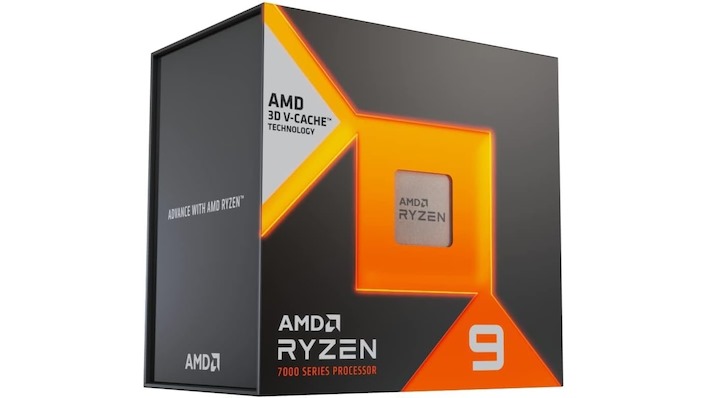
These three chips join the rest of the Socket AM5 CPUs seeing deep discounts right now in anticipation of the launch of the Ryzen 9000 family. If you're building on a budget, it might be a smart move to go ahead and adopt Zen 4 now. AMD has committed to supporting the Socket AM5 platform through 2027, and we already know that the Ryzen 9000 Zen 5 CPUs don't bring any new critical features to the desktop platform, and that they won't outpace Zen 4 X3D in gaming. If the performance of Zen 4 is sufficient for your needs, the parts are readily available and quite cheap compared to their launch prices.


